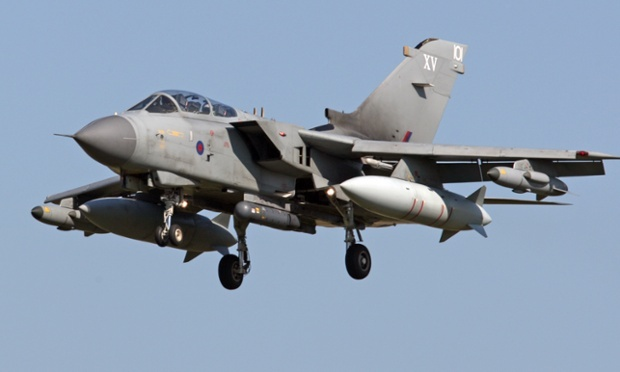Making war is not the best way to respond to Islamic State
 Remember “mission accomplished”? President George Bush, standing on the deck of the USS Abraham Lincoln proudly declaring victory in Iraq. That was more than 11 years ago – and since then not a single day has passed without blood having been shed in that region. Remember the march against the Iraq war in London? A million people out with banners, desperately trying to persuade Tony Blair that war was a bad idea. This week, a few dozen assembled outside Downing Street to protest at the proposition that yet more bombing is the answer to Iraq’s problems. I am reminded of Albert Einstein’s famous definition of insanity: “Doing the same thing over and over again and expecting different results.” The difference this time is that even the public is on board. And the theatre has extended to Syria too.
Remember “mission accomplished”? President George Bush, standing on the deck of the USS Abraham Lincoln proudly declaring victory in Iraq. That was more than 11 years ago – and since then not a single day has passed without blood having been shed in that region. Remember the march against the Iraq war in London? A million people out with banners, desperately trying to persuade Tony Blair that war was a bad idea. This week, a few dozen assembled outside Downing Street to protest at the proposition that yet more bombing is the answer to Iraq’s problems. I am reminded of Albert Einstein’s famous definition of insanity: “Doing the same thing over and over again and expecting different results.” The difference this time is that even the public is on board. And the theatre has extended to Syria too.
I suppose we think it is different now because it’s just air strikes we are going in for. But air strikes have limited operational effectiveness. Lots of satisfying sounding noise and power, yes. Like a King Kong roar. But the Islamic State fighters know that all they have to do is blend into the civilian population. And when the bombs rain down on the innocent as well as the guilty, a new generation of jihadi warriors is born. Last time it was al-Qaida, now it is Islamic State – and next time they will be called something else. The bombs might help change the nomenclature but they do little to shift the underlying reality.
There are times when I can see that there really is no alternative to war. But when air war has become so easy (something conducted from above the clouds or from the safety of a bunker in Nevada or Lincolnshire) and peace-making so difficult (because we don’t really understand Islamic sectarian conflict) bombs and cruise missiles are increasingly used as the first resort and not a last one. Our fighters can press a few buttons, twiddle a few joysticks, and then drive home for tea. But on the other side of the world, mothers will be staring into the coffins of their dead children and new grievances will be born that will one day return to our shores, seemingly from out of nowhere.
The problem all along with these rolling wars in Iraq is that we have never had a clear idea of what victory looks like. For many people now, victory is indistinguishable from revenge. Getting back at those bastards who are chopping innocent people’s heads off is a totally understandable reaction. I have it too. But revenge is a poor guide to foreign policy – especially when it also punishes bystanders who have nothing to do with it. Do we bomb Brixton because an innocent teenager is stabbed to death there?
So what to do? Well here is a modest suggestion. How about we spend our money on education instead of cruise missiles at $1.2m a pop? At present there are three million Syrian refugees in Lebanon and Jordan, a vast number, with one in five of the boys not receiving any sort of education at all. They are a prime target for Islamic State recruitment officers.
On Wednesday in New York, the UK government re-committed to spending £100m on education for the region, which sounds great. Except that it made that commitment a year ago already, and so far has coughed up only £3m for a few Lebanese textbooks.
Education is the best way to help inoculate the next generation against radicalism. But it doesn’t address the public need for visible and quick-fix satisfaction, which is a dangerous itch to scratch. It might make us feel a better for a brief period – mission accomplished, we say to ourselves - but it will have changed little.
And while we are feeling better, new hatreds are being stirred up in the refugee camps of Lebanon and Jordan. In the long-term fight against radicalism, books are more effective than bombs.
@giles_fraser


 Votes : 0
Votes : 0









